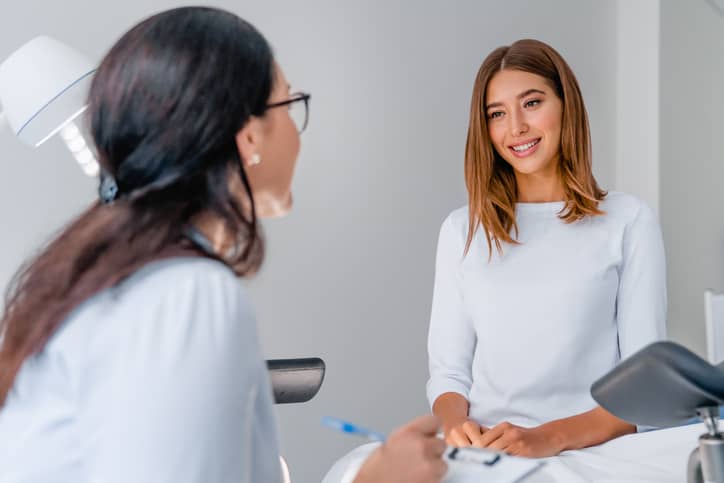Chlamydia is usually caught through unprotected vaginal, anal or oral sex.
It can also be passed on if:
- you share sex toys and don't wash them or cover them with a condom each time they're used – read more about using sex toys safely
- a pregnant woman has chlamydia and she passes the infection on to her baby during childbirth
It's unclear whether chlamydia can be spread through touch to another person's genitals if there's infected semen or vaginal fluid on your fingers, or by rubbing female genitals together.
You can't catch chlamydia from kissing or sharing things such as toilets or towels with someone who has the infection.
What should I do if I think I might have chlamydia?
Go to your GP, a sexual health clinic or a genitourinary medicine (GUM) clinic for a free, confidential test.
Chlamydia often has no symptoms, so you may not know you have it. If there's any chance you have it, find a local sexual health service or go to your GP for a free and confidential check-up.
Chlamydia can be treated easily with antibiotics. You'll be advised to avoid all sex, including oral and anal, even with a condom, for seven days until you've completed your course of treatment.
If you don't get treatment for chlamydia, it can lead to long-term problems for both men and women, including infertility.


